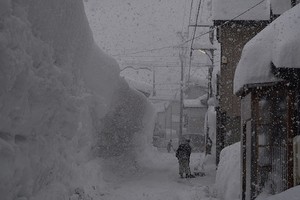By RYUTARO ABE/ Staff Writer
June 11, 2022 at 14:08 JST
 Prime Minister Fumio Kishida delivers the keynote address at the June 10 start of the Asia Security Summit in Singapore. (Tatsuya Sato)
Prime Minister Fumio Kishida delivers the keynote address at the June 10 start of the Asia Security Summit in Singapore. (Tatsuya Sato)
SINGAPORE--Prime Minister Fumio Kishida pledged in a keynote speech to bolster Japan’s defense spending due to Russia’s invasion of Ukraine, saying he feared a similar scenario could easily flare in East Asia in the not-too-distant future.
Kishida delivered his address June 10 to open the Asia Security Summit, also known as the Shangri-La Dialogue, organized by Britain’s International Institute for Strategic Studies and supported by The Asahi Shimbun among other international organizations.
Shinzo Abe in 2014 was the last Japanese prime minister to attend the conference.
While Kishida never outright named Russia and China as the targets of his criticism, he touched upon the Feb. 24 invasion of Ukraine as well as military advances in the East China and South China seas as “attempts to unilaterally change the status quo through force and ignoring international law.”
Turning to North Korea’s nuclear weapons program and recent salvo of ballistic missile launches, he labeled the reclusive country as a “clear and serious threat” to the international community.
Kishida said the world was at a crossroads of having to choose between protecting a rules-based international order or returning to a world of survival of the fittest in which forceful changing of the status quo becomes the norm.
He laid out his vision for peace consisting of five main pillars: maintaining and strengthening a free and open international order based on rules; strengthening national security; working toward a world without nuclear weapons; strengthening the functioning of the United Nations; and strengthening international cooperation in such areas as economic security.
Kishida said Japan would strengthen its ties with ASEAN to help bring about a free and open Indo-Pacific region, calling it a major goal of Japanese diplomacy. He added that he would release a plan by spring 2023 that he hopes would provide specifics for achieving that goal.
He also pledged about $2 billion (269 billion yen) over a three-year period to nations in the Indo-Pacific region to strengthen their Coast Guard activities.
Saying he harbored a strong sense of crisis that “Ukraine might represent the East Asia of tomorrow,” Kishida pledged to dramatically bolster defense spending over the next five years to shore up Japan’s defense capabilities.
Kishida added that Japan would strengthen the deterrence and response capability of the alliance with the United States as well as promote security cooperation with allies such as Australia.
Excerpts from Kishida's speech:
“Since the pandemic broke out, the world has become even more uncertain. Amidst continuing economic disruption, we have come to recognize the importance of reliable and secure supply chains.
“Then, as the world was still recovering from the pandemic, Russia’s aggression against Ukraine occurred. No country or region in the world can shrug this off as ‘someone else’s problem.’
“It is a situation that shakes the very foundations of the international order, which every country and individual gathered here today should regard as their own affair.
“Can the rules-based international order we have built through hard work, dialogue, and consensus be upheld and the march of peace and prosperity continue? Or will we return to a lawless world where rules are ignored and broken, where unilateral changes to the status quo by force are unchallenged and accepted, and where the strong coerce the weak militarily or economically? That is the choice we have to make today.
“Rules must be respected. Even if they become inconvenient, one cannot be allowed to act as if they did not exist, nor can one be allowed to unilaterally change them. If one wants to change them, a new consensus must be made.
“The ramifications of Russia’s threat to use nuclear weapons are not limited to the threat itself. The threat may have already caused serious damage to the nuclear nonproliferation regime. It may have already made it even more difficult for countries seeking to develop nuclear weapons to abandon their plans.
“Moves to develop and possess nuclear weapons might even spread further to other countries. These are among the various concerns that have been voiced. Even before the Ukraine crisis, North Korea frequently and repeatedly launched ballistic missiles, including ICBM-class ones, and we have grave concerns that yet another nuclear test is imminent.”




















A peek through the music industry’s curtain at the producers who harnessed social media to help their idols go global.
A series based on diplomatic documents declassified by Japan’s Foreign Ministry
Here is a collection of first-hand accounts by “hibakusha” atomic bomb survivors.
Cooking experts, chefs and others involved in the field of food introduce their special recipes intertwined with their paths in life.
A series about Japanese-Americans and their memories of World War II